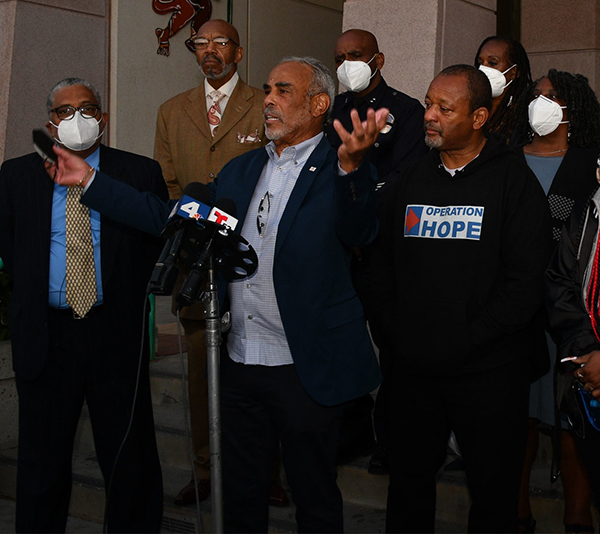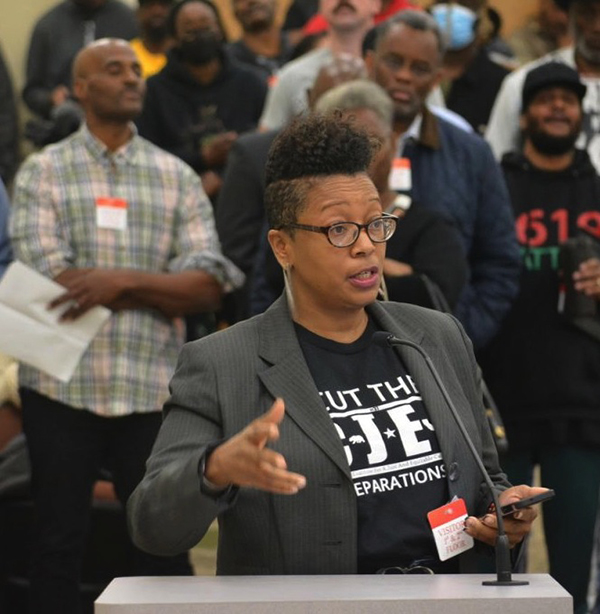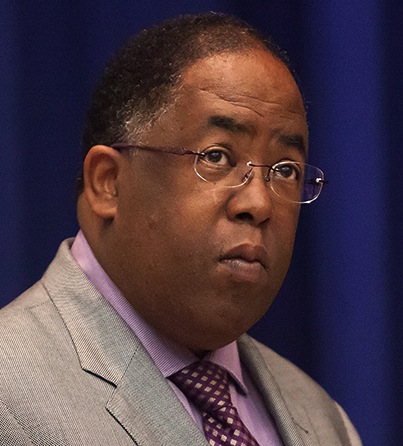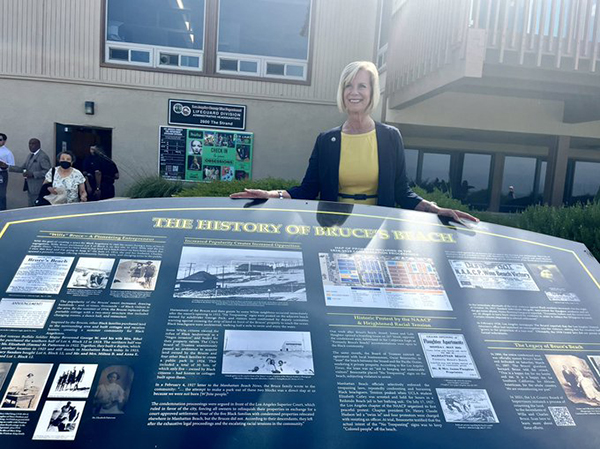Wave Wire Services
LOS ANGELES — One day after a reward fund swelled in hopes of generating tips leading to the killer of Tioni Theus, funeral services were held Jan. 27 for the 16-year-old girl who was shot and left alongside a South Los Angeles freeway.
Theus’ body was discovered Jan. 8 on the side of the Harbor (110) Freeway on the Manchester Avenue on-ramp near South Figueroa Street. She was last seen Jan. 7 after telling a family member she was going to meet a friend to go to a party, officials said.
On Jan. 26, the state added $50,000 to a growing reward for information leading to the arrest and conviction of the person responsible for the teen’s death. The county Board of Supervisors previously approved a $10,000 reward in the case and Los Angeles City Councilmen Marqueece Harris-Dawson and Curren Price have introduced a motion for the city to offer another $50,000.
That motion could be approved as early as Feb. 4.
A host of elected officials, including District Attorney George Gascón, held a news conference the day before the funeral reaching out for public help tracking down the girl’s killer or killers.
The district attorney said there is evidence indicating that “this young girl may have been the victim of human trafficking,” and noted that the investigation into her death is ongoing.
“We need the public’s help,” Gascón said. “Please help bring Tioni’s murderer to justice, and if you have any information, please contact the California Highway Patrol.”
Gascón did not elaborate on the human-trafficking allegation. The girl’s cousins told the Los Angeles Times that Tioni had been pulled into prostitution and theft by a man she met on Instagram.
“We’re definitely not pretending that Tioni was an angel,” cousin Nafeesah Kincy told the paper. “She faced trauma. I want to humanize her. I don’t want her to be seen as a prostitute or a runaway or somebody that people feel like ‘Oh, well, they live that lifestyle.’
“It’s so many young women out here being victimized and being taken advantage of physically and sexually. So, it’s my cousin today. But it could be your cousin, your daughter, your friend tomorrow,” Kincy added.
Speaking to reporters prior to the funeral service at the Winston Mortuary in South Los Angeles, relatives again called out for public help finding her killer.
“I don’t want anybody else to have to go through this,” Tioni’s father, Darien Jackson, said. “And we know they will, but I hope that we can do something to eliminate some of the things that are happening to our babies — boys and girls. It’s just not girls.”
In response to Theus’ death, Harris-Dawson and Price introduced a motion before the City Council Jan. 26 asking for an equity analysis of violence and crime targeting Black women and girls, how the cases are handled and the rate at which they are solved.
Their motion asks that the city’s Civil + Human Rights and Equity Department and police department make recommendations to improve equity and justice for all crime victims.
The equity analysis would include information on violence and crime experienced by Black women and girls in Los Angeles, the rate at which homicides and violent crime against Black women and girls are solved, how missing persons cases involving Black women and girls are handled and policy recommendations to increase equity and justice for Black victims and their families.
“While violent crime against any individual, regardless of race or gender, is a terrible tragedy, deep inequities exist in the violence and crime Black women and girls face, the way in which those crimes are covered in the media, and in turn, the way in which society perceives and responds to the problem,” the motion stated. “Tioni Theus, and all Black women and girls who have been the victims of violent crime, deserve our attention, compassion and the swift and urgent pursuit of justice.”
The motion cited a 2016 Northwestern Law Journal of Criminal Law and Criminology study that found that missing-person cases involving Black people make up about one-fifth of such reports in the mainstream media, even though they make up one-third of all missing-person cases reported to the FBI. About 34% of missing girls and women in 2020 were Black, despite Black girls and women being only about 15% of the U.S. female population, the motion added, citing the National Crime Information Center.












